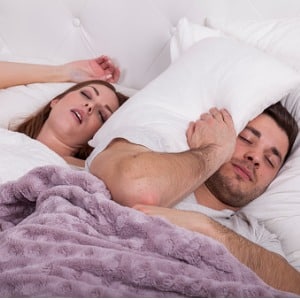Does Alcohol Make Me Snore?
- Posted on: Jun 24 2021
 You may notice your partner complains of your snoring more when you’ve had a few alcoholic drinks. This happens due to the effects of alcohol on your muscles, blood supply, and respiratory drive.
You may notice your partner complains of your snoring more when you’ve had a few alcoholic drinks. This happens due to the effects of alcohol on your muscles, blood supply, and respiratory drive.
Alcohol is a depressant. This means that it slows down your brain and body because it acts mainly on the Central Nervous System. Snoring occurs when there is weakness of the muscles of the throat. Alcohol relaxes the muscles of the throat including the soft palate and the tongue increasing their tendency to vibrate and collapse the airway.
Alcohol is also a vasodilator which means it causes areas to swell like inside your nose.
A congested nose and an over-relaxed tongue and throat is a bad recipe for loud snoring.
Alcohol can cause more nighttime awakenings, headaches, and poor quality sleep. This is in part due to the decreased REM sleep (the most important part of your sleep cycle for restoration). You may think alcohol helps you sleep because you fall asleep more quickly after consumption. This is not true because you actually have fewer REM cycles when you consume alcohol. This makes you feel more fatigued and groggy the next morning.
Alcohol can also worsen sleep apnea. Drinking alcohol before bed makes it more likely to have apnea episodes (where you stop breathing) and drops in oxygen levels called desaturation.
If you have sleep apnea, it is a good idea to abstain from alcohol use so it does not worsen the condition. If alcoholic drinks are consumed, try to wait 2+ hours after your last drink before going to sleep to allow some time for the alcohol to dissipate. Keep in mind, it takes 1 hour for 1 alcoholic drink to be metabolized so you may need more than 2 hours. This technique is also helpful for alcohol-induced snoring.
For more information about snoring and sleep apnea call our office for a consultation at 512.601.0303
Tagged with: alcohol induced snoring, Snoring
Posted in: Sleep Apnea, Snoring

